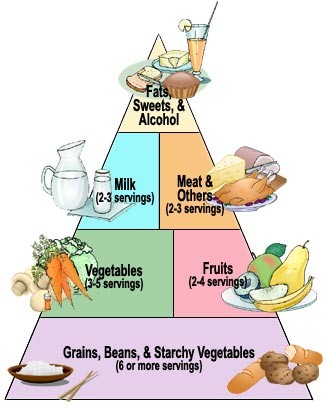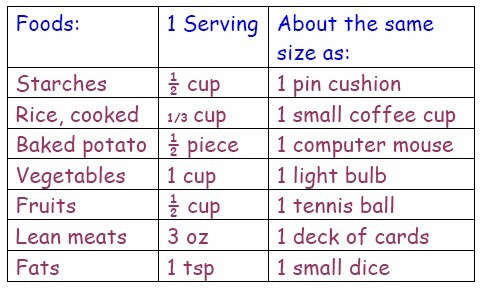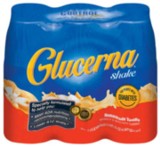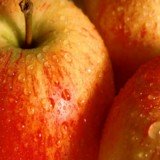Diabetic Nutrition Information
Nutrition Information
Diabetic nutrition is an important aspect to know in depth if you are diabetic or are taking care of someone who has diabetes. The first thing to know is that diet is the cornerstone of diabetes management. There are nutritional supplements are also very important to include in your nutrition plan. Some of these supplements include Fiber, antioxidants, corsolic acid, Folic acid and other B vitamins and chromium, just to name a few. Fiber supplements help to control your blood-sugar level.
Corsolic acid increases your body's glucose uptake and a common source of this is banana leaf extract. Folic acid and the other B vitamins help in the fight against vascular diseases in diabetics. Chromium improves glucose tolerance in both type 1 and type 2 diabetes. It also increases insulin binding and insulin reception. People with diabetes have a greater need for Vitamin E than the average person, therefore, you may also take Vitamin E supplements. Vitamin E improves insulin activity, oxygenates your blood and acts as a antioxidant.
Stress and diabetes are closely related. When you are stressed, your blood-sugar level increases. Did you know that extra energy is needed to handle stress? So in order to get this extra energy, your body makes extra sugar. Eating a healthy and good diet helps to reduce the stress we may feel at times. Some vitamins and nutritional supplements, like the ones mentioned above, may help to relieve stress and improve your diet.
Some of the things you can do to maintain a normal blood-sugar level are eating round about the same amount of food everyday, your meals and snacks should also be eaten at about the same time, do not skip meals or snacks.
Diabetic Nutrition Plan and Guide
 Knowing the food pyramid diagram is a great tool for everyone, not just those who are diabetic. It helps you in your eating healthy quest because you get to eat a variety of healthy foods. Different foods provide us with the vitamins and minerals that our bodies need. Here is just a recommended guideline on the serving portions from the above food groups in the pyramid:
Knowing the food pyramid diagram is a great tool for everyone, not just those who are diabetic. It helps you in your eating healthy quest because you get to eat a variety of healthy foods. Different foods provide us with the vitamins and minerals that our bodies need. Here is just a recommended guideline on the serving portions from the above food groups in the pyramid:
- Fats, oils and sweets - use sparingly
- Meat, poultry and fish - 2-3 servings
- Dairy products - 2-3 servings
- Fruits - 2-4 servings
- Vegetables - 3-5 servings
- Starches - 6-11 servings
Your body gains energy, vitamins, fiber and minerals from starches. Eating starches is also healthy for everyone, including diabetics. However, they should be eaten in the right amounts, which often, they are not. There are some starches which do not taste sweet but contain a lot of sugar. So caution has to be taken, in fact, starches should be eaten in moderation when diabetic.
 Include raw and cooked vegetables everyday in your diabetic nutrition plan. Vegetables give you minerals, fiber and vitamins, with very few calories. Caution also has to be taken when cooking some vegetables such as carrots, sweet potatoes, corn and sweet peas because the sugar level in them increases when cooked.
Include raw and cooked vegetables everyday in your diabetic nutrition plan. Vegetables give you minerals, fiber and vitamins, with very few calories. Caution also has to be taken when cooking some vegetables such as carrots, sweet potatoes, corn and sweet peas because the sugar level in them increases when cooked.
Fruits, like vegetables, also give your body minerals, fiber, vitamins and energy. To add variety and spice up your diabetic nutrition diet, you may eat fruits raw or as 100% fruit juice with no sugar added, dried (my personal favorite!) or canned in their own juice. Fruit nutrition and vegetable nutrition facts are important to know and will help you a great deal when devising your eating plan.
Dairy products such as milk and yoghurt give your body energy, protein, calcium, vitamin A, other vitamins and minerals. Only fat-free or low-fat milk (2%), as well as low-fat or fat-free yoghurt may be included in your diabetic nutrition plan. This is because they have less total fat, saturated fat and cholesterol. If you are maybe lactose intolerant, other foods that can give you calcium include spinach, broccoli, sardines with bones and tofu processed with calcium, amongst others.
Protein helps your body to build tissue and muscle, as well as provide your body with minerals and vitamins. Meat, eggs, cheese, poultry, fish and tofu are examples of food that you can include in your diabetic nutrition plan. Cook protein foods in low-fat ways which may be: stewing, roasting, grilling, stir-frying, steaming or broiling.
You should eat small amounts of fats and oils because they have lots of calories. Some fats and oils contain saturated fats and cholesterol which is not good for you. Cutting back on high-fat food will help you ,lose weight, lower blood pressure and keep your blood sugar and blood fats under control. There is a co-relation between weight and diabetes, therefore, maintaining a healthy weight when you are diabetic is vital.
When you are overweight, your body does not use insulin well. When this happens, you are said to be insulin resistant. Did you know that even a 5-10kg weight loss can improve your body control your blood sugar level. Weight loss also lowers blood pressure. Not gaining extra weight will help too, so try to eat and do activities that lower your blood sugar level.
It is highly recommended that you select a variety of foods that are nutrient-dense. Nutrient dense foods are low in fat and also low in added sugars. As we talked about earlier, diet has plays a great role in the management of diabetes, and this is covered in detail in the article control of diabetes. You may also add foods from the low glycemic food list which have been considered as one of the tools to help in the management of diabetes, together with the glycemic index diet plan.
 Diabetic Nutritional drinks, which are usually high protein but low-fat shakes and powders will be very good to include in your diabetic nutrition plan. One of the most popular ready-to-drink protein drinks for diabetics is Glucerna which is manufactured by Abbott Laboratories.
Diabetic Nutritional drinks, which are usually high protein but low-fat shakes and powders will be very good to include in your diabetic nutrition plan. One of the most popular ready-to-drink protein drinks for diabetics is Glucerna which is manufactured by Abbott Laboratories.
It is very low in calories and can be consumed as a meal or snack replacement while providing quick nutrition and controlling your glucose levels. It is high in monounsaturated fat which is good for you heart, and low in saturated fat which is not heart-friendly. It is also a great source of dietary fiber which helps to control your blood glucose levels. Glucerna drinks are packed with 27 vitamins and minerals and are lactose-free and gluten-free.
 There are also diabetes nutrition bars which you can include in your diabetic nutrition plan. These have been clinically proven to help manage glucose levels. Not only do they provide nutritional support for the stability of your blood-sugar level and help you avoid blood sugar highs and lows, but they also reduce excessive food consumption.
There are also diabetes nutrition bars which you can include in your diabetic nutrition plan. These have been clinically proven to help manage glucose levels. Not only do they provide nutritional support for the stability of your blood-sugar level and help you avoid blood sugar highs and lows, but they also reduce excessive food consumption.
A good nutrition bar will have a balanced formula, such as 10-15 grams of protein, 20-30 grams of carbohydrate, and 5-7 grams of fat. It's also important that you choose nutritional bars that contain primarily monounsaturated fat. The only downside to nutritional bars is their price. If you want to check how effective the bar has been on your blood-sugar level, use your blood sugar meter roughly one and a half to two hours after consuming it. Some examples of nutritional bars include Balance Bar, Zone Perfect, Genisoy and Luna Bar just to name a few.


